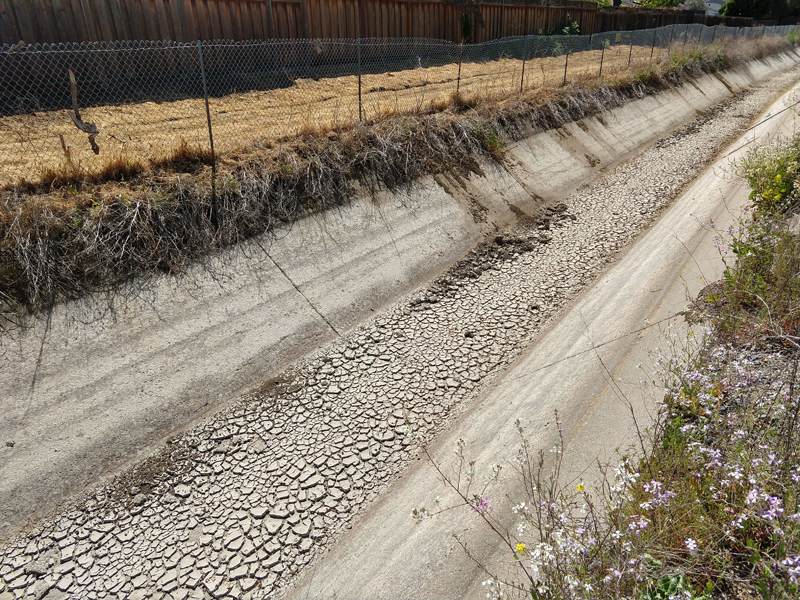CCWD residential users facing 15% cut this summer

CONTRA COSTA COUNTY, CA (May 18, 2022) — April’s showers may have brought May flowers, but June’s heat will bring water restrictions – and increased fees – come July.
On April 20, the Contra Costa Water District (CCWD) board approved a plan for a 15 percent reduction in water use as the state faces its third year of drought. CCWD’s service area includes Concord, Clayton and portions of Pleasant Hill.
The cuts are in response to Gov. Gavin Newsom’s March Executive Order requiring urban water suppliers to implement a minimum of Stage 2 drought response action.
On July 1, CCWD’s residential and municipal retail customers must reduce use by 15%, with commercial/industrial customers facing a 5% cut and irrigation/agricultural customers required to use 25% less. Because the district implemented a voluntary 10 percent reduction in 2021, the 2020 billing period will be used to determine water usage.
“We know that further reductions can be a challenge, but our customers are conscientious water users who step up for their community,” board President Lisa Borba said in a press release.
Borba, whose Division 1 includes parts of Concord, had previously announced that she would resign effective April 22. The board decided to fill the vacancy by appointment, with applications accepted until 5 p.m. May 19. The post will then be up for election next November.
Drought surcharge pending
CCWD will hold a public hearing on June 15 to review a drought surcharge of up to 15% effective July 1. For the average customer using 260 gallons a day, it would amount to about 28 cents a day.
“The intent of the surcharge is to help cover the cost and impact of the drought,” said CCWD spokesperson Jennifer Allen. “And if we’re heading into a multi-year drought, we’re planning ahead for that, too.”
The new rules are in addition to water waste prohibitions the district established in 2015, including:
- Causing excess water run-off.
- Watering during and up to 48 hours after rainfall.
- Watering between 9 a.m. and 5 p.m.
- Using a hose without a shutoff valve to wash a vehicle.
- Washing hardscapes, unless failure to do so would create a hazard to health and safety.
- Using potable water in a non-recirculating fountain.
The board added six new restrictions, including not serving drinking water other than upon request in restaurants and no watering of new homes/buildings that is not drip or microspray.
Allen said the district has not issued any fines to date. “When we receive phone calls from the community or employees that notice a wasteful use, we contact that user promptly and let them know they need to address the violation.”
The value of Los Vaqueros
According to a staff report, CCWD “has sufficient supply to meet efficient customer demands this year.” That supply includes a contract allocation from the Central Valley Project, water transfer from the East Contra Costa Irrigation District and local storage bolstered by the 160,000-acre foot Los Vaqueros Reservoir.
“The fourth leg of that (supply chain) is the call for conservation,” Allen said. “That’s how we’re planning how much water we’ll need to have available for customers to use this year.”
The district built the Los Vaqueros Reservoir in the late 1990s and expanded it in 2012. As of late April, it was at about 60% capacity.
“The drought benefits of water stored in Los Vaqueros really speaks to the forwarding thinking of our board, our employees and our customers in the importance of investing in local storage,” Allen told the Pioneer.
For water conservation tips as well as information on rebate programs, visit ccwater.com/drought.

Bev Britton
Bev Britton graduated with a degree in journalism from the University of North Dakota and moved to the Bay Area with her soon-to-be husband Jim in 1986. She was features editor at the Contra Costa Times in Walnut Creek before becoming managing editor of the Contra Costa Sun in Lafayette in 1995. She retired from newsrooms in 2001, but an ad for the Clayton Pioneer drew her back in. The family moved to Lake Wildwood in the Gold Country a few years ago - but working at the Pioneer keeps her in touch with her old neighborhoods in Concord and Clayton.
